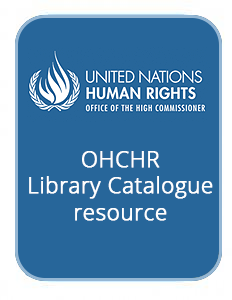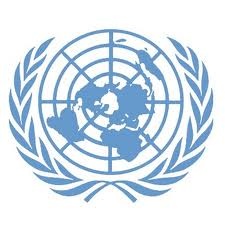The Land Portal identifies International Conventions or Treaties as a subcategory of Legislation & Policies. International Conventions or Treaties are agreements between states and/or international organizations, on a land-related issue.
Declaration on land issues and challenges in Africa
Declaration on land issues and challenges in Africa
Assembly/AU/Decl.1(XIII) Rev.1
References to land in the Beijing Platform for Action
The Beijing Platform for Action, an agenda for women's empowerment, spelled out a set of objectives and actions to be taken by governments, the international community, non-governmental organisations and the private sector to overcome obstacles to women's equality. Amongt the critical areas of concern relevant to women's land rights mentioned in the document are the following:
Istanbul Declaration on Human Settlements and Habitat Agenda
These two important documents include obligations related to women's housing and inheritance rights. Under the Habitat Agenda, States commit themselves also to:
"Provid[e] legal security of tenure and equal access to land to all people, including women and those living in poverty; and undertaking legislative and administrative reforms to give women full and equal access to economic resources, including the right to inheritance and to ownership of land and other property, credit, natural resources and appropriate technologies" (Sec. 40b)
Women’s equal rights to housing, land and property in international law
[From UN-Habitat] Women’s equal rights to adequate housing, land and property are well elaborated under international human rights law but are often elusive in practice. This document is a reference guide to international human rights standards identifying both the substance of women’s rights as well as the commitments made by States with regard to improving women’s rights to adequate housing, land and property.
Optional Protocol to the Convention on the Elimination of Discrimination against Women (CEDAW)
The Optional Protocol entered into force in 2000.
Convention on the Elimination of All Forms of Discrimination against Women
The Convention on the Elimination of All Forms of Discrimination against Women (CEDAW) - currently ratified by 187 countries - is the only human rights treaty that deals specifically with rural women (Art. 14). Adopted in 1979 by the United Nations Generally Assembly, entered into force in 1981. The Convention defines discrimination against women as follows:
Convention on the Elimination of All Forms of Discrimination against Women (CEDAW)
The Convention on the Elimination of All Forms of Discrimination against Women (CEDAW) is the only international treaty specifically focused on preventing discrimination against women and explicitly dealing with rural women and their rights (Art. 14). On 18 December 1979, the Convention was adopted by the United Nations General Assembly. It entered into force as an international treaty on 3 September 1981 after the twentieth country had ratified it.
United Nations Convention to Combat Desertification (UNCCD)
The objective of this Convention is to combat desertification and mitigate the effects of drought in countries experiencing serious drought and/or desertification, particularly in Africa, through effective action at all levels, supported by international cooperation and partnership arrangements, in the framework of an integrated approach which is consistent with Agenda 21, with a view to contributing to the achievement of sustainable development in affected areas.








